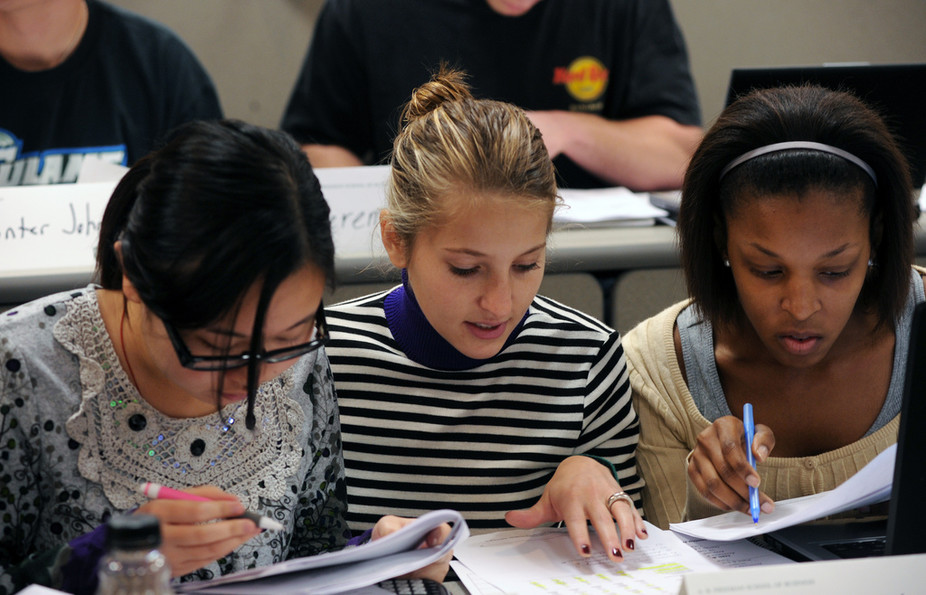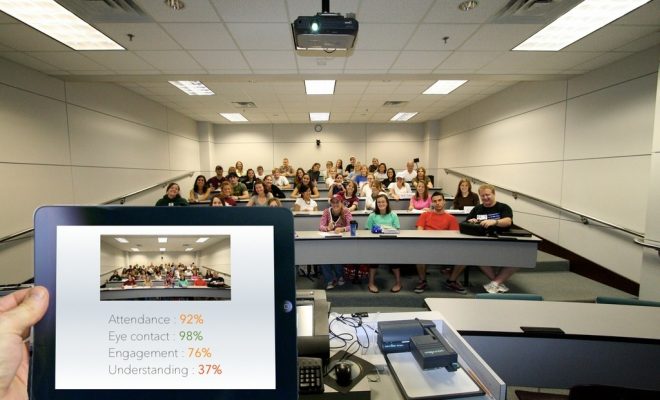Full involvement learning: A Jedi toolbox for the teaching of tomorrow

A guest column by Lucien Vattel
For too long, educators have focused on “what we learn” over “how we learn.” To unlock an understanding of how our consciousness most intuitively engages and comprehends, a thorough exploration of the learning process becomes key. Only then will we be able to fully understand the art of inducing electrified engagement, meaningful connections, deep illumination, awe, and even rapture through idealized modalities of learning. Such explorations allow us to more reliably provide students with transformational encounters with their universe and themselves. In essence, we need a new kick-ass toolbox for facilitating the apex of cognitive ignition.
To pursue such a mission, we require a new taxonomy that supports a variety of high-engagement, deep-immersion methods, tools, and techniques. In todays “edu-verse”, there are an infinite number of concepts for our minds to grasp and act upon. Moreover, there are a variety of ways to shine a light upon these various structures of knowledge. And so, the grand challenge becomes this: How can we shine the most illustrious, wavelength-appropriate, multispectral light upon these realities, art forms, scientific processes, stories, skills, and understandings of our age? What tools, what technologies, and what facilitations of experience best connect us to the content we intend to explore, to the ideas we wish to grasp, and to people we wish to know and understand? For each learning outcome, and within each educational domain, I believe that we will find certain “ways-in” (through teaching approaches, experiences, and technologies) that lend themselves most naturally to the attunement of each concept’s essence. What is the best and most fulfilling library of eureka moment potentiators? What’s in the “Jedi Toolbox” for teaching in the 21st century?
Five years ago, our company GameDesk, began experimenting with a variety of approaches, techniques, and technological tools to this end. We’ve explored at home, in-school, online, and in your pocket. We’ve gone high-tech, low-tech, and no-tech. Whether it is a chalkboard, lecture, game, video, story, experiment, simulation, buildable physical system, programmable environment, or role-played experience, each tool provided a unique lens of experience on the chosen subject of learning.
As we explored and developed,, we asked ourselves: What experiences enable learners to most intuitively and accurately grasp concepts? What visualizations, words and metaphors, narratives, objects, and interactions connect us most immediately and with the most perceptual fidelity to the subject at hand? What technologies best link certain actions and choices, interweave and intimately bind them to the world of knowledge? What learning modalities best allow for students to feel energized and focused, fully immersed in their involvement, and joyful in the process of the learning? Within these these methods, which work best for novices, journeymen, and experts?
To ground this exploration, let’s cite some examples. In our latest game experiences, Geomoto and Pangean, we linked specific hand movements through a consumer hand-tracking device (the Leap Motion controller) to continental and plate movements. This 1:1 movement relationship made learning about continental drift, tectonic plates, and their resulting phenomenon highly intuitive. Here, we leveraged the affordances of hand motion to naturally attune the mind to geoscience processes. As student observes that they could actually see and feel how the plates worked and the effects they had on the earth.
In another exploration called EDULARP, we used role-play to create deep engagement with historical systems. To help them learn history experientially, students role-played through various social classes that existed during different periods of ancient history. They became merchants, governors, astrologers, and priests. By both researching the social norms and practices of a specific culture and then interacting with one another in character, students fulfilled in-game objectives that provided them with an enriched and lasting understanding that persisted beyond the simulated reality. In this modality, role-play provides students with deep, personalized feelings and experiences of engaging in historical systems of thought, agriculture, culture, and politics.
Another tool is the ‘digital sandbox’. Sandbox technologies allows for creation-based simulations that students can manipulate to program and build objects, inventions, worlds, and even universes. Sandboxes, such as Minecraft, Scratch, Universe Sandbox, and the physics creator Algodoo, allow students to experiment and create their own mathematically driven architectural structures, galaxies, and physics-based inventions respectively. Within this learning vehicle, students are able to make predictions, design ideas, test hypotheses, and play out those predictions in simulated world environments.
There’s of course more to fully educating a person than guiding them to mastery of the core K-12 curriculum. Consider, for example, the ability to be connected, empathetic, supportive, and compassionately communicative. Let us look at what physical environments and interactive activities most facilitate human connection. What experiences inspire the imagination and assist us in redefining the boundaries of our understanding and beliefs? What are the fastest and most fulfilling methods of developing self-awareness, persistence, and flexibility? These questions lead us to designing more full-spectrum learning tools and experiences; new methods deeply needed in a society with a severe deficit in social-emotional skills.
If our teaching culture were to address the questions presented here, make a claim about what kind of learning activities fit best, and build a practice of designing experiences in this way, what would our teaching become? With such a toolbox fully realized, teachers of the future will no longer be disseminators of facts, concepts, and memorized skills; rather, they will become “experience designers.” Like Yoda, they will design encounters and challenges that are deliberately constructed to reveal what our minds, bodies, and spirits are capable of. Such constructed experiences empower us to explore, to rethink broken systems, and cultivate a daily spirit of innovation. Albert Einstein once said, “I never teach my pupils, I create conditions in which they may learn.” We are the condition-creators, the dreamers of dreams. So rise teachers of tomorrow, become the magic makers you were born to be.
___________
Lucien Vattel s the founder and CEO of GameDesk, a 501(c)3 Research and Technology Development Institute whose mission is to develop the next generation model of education, revolutionizing the tools we use and the way we teach.
Read all of our posts about EdTech and Innovation by clicking here.






